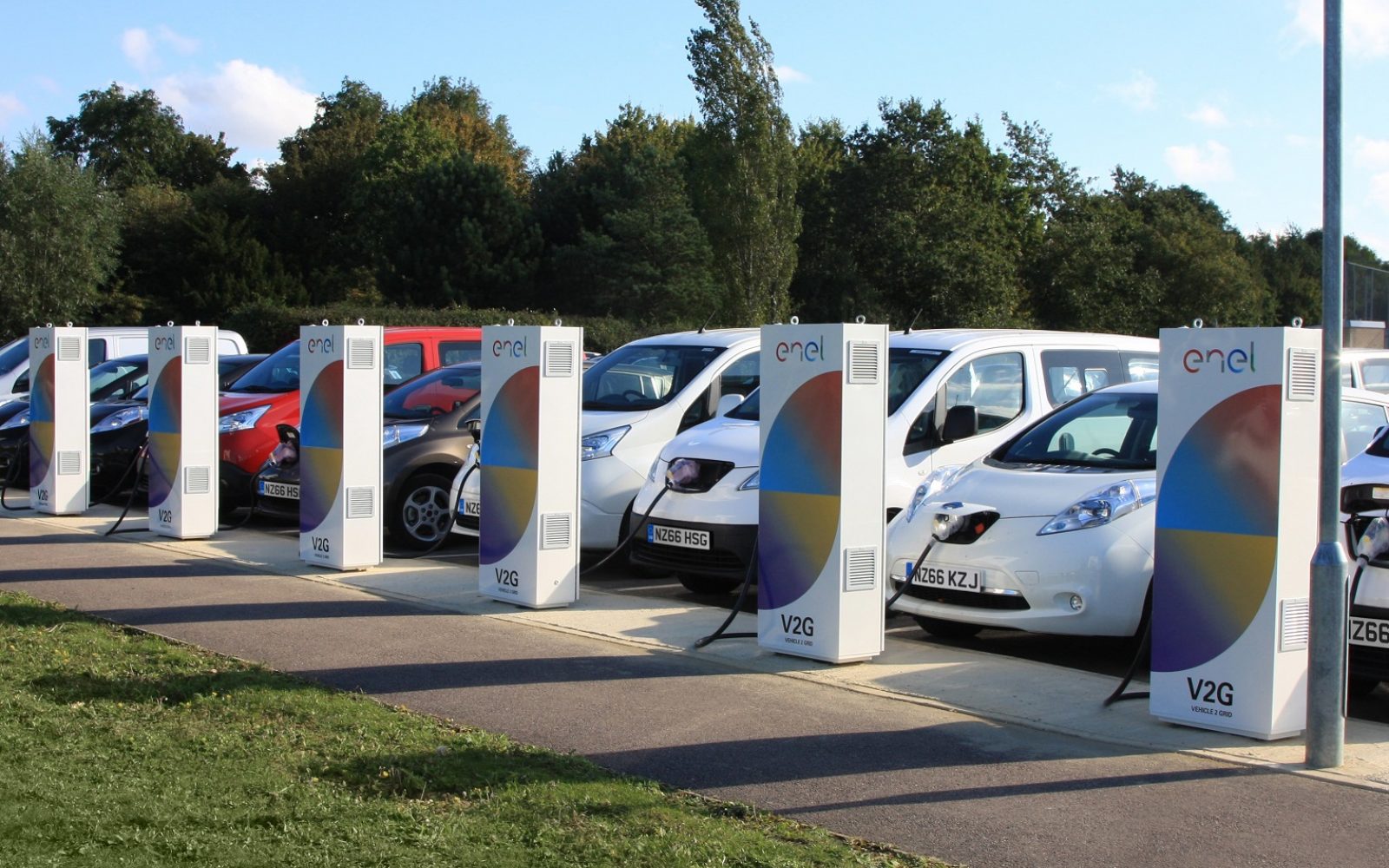Placement: Modelling the financial benefit of Electric Vehicle and Vehicle to Grid charging

C-DICE is delighted to offer a fantastic opportunity for short term placement for a postdoctoral researcher, with that may lead to a longer-term research collaboration with Sygensys.
The project will be ideal for a researcher with financial modelling expertise, which will contribute significantly to an important project for the company, to assess the financial benefit of smart Electric Vehicle (EV) charging and vehicle to grid.
Sygensys is a start-up company developing demand management and energy storage systems to allow effective use of renewable energy sources. Our vision is to leverage the incredible potential of bi-directional power flow from electric vehicles and battery energy storage systems to help balance electricity supply and demand, both on public grids and local microgrids. Our products will provide a secure supply to domestic and industrial consumers, even when electricity systems encounter adverse events such as storm damage, equipment failure or cyber-attack.
Sygensys is developing patented technology to enhance the performance of Electric Vehicle (EV) charging and Vehicle to Grid (V2G) technology improving grid resilience. We are working with a wide range of collaborators including grid operators, regulators, end users and semiconductor vendors to bring these innovative solutions to market. We are seeking a skilled, postdoctoral level researcher to complement the expertise in the team, to develop the next phase of the project. The project will provide an ideal experience of applying financial modelling skills into a real-world problem that has the potential to make an important contribution to the transition to a net zero carbon future.
The project can be undertaken full-time for 1 month (1FTE), but could be pro-rated for a part-time placement, for example for one-to-two days per week for a longer period of time.
The C-DICE project will provide a contribution towards travel and subsistence costs.
Job Purpose
This project is to assess the potential financial benefit of smart Electric Vehicle (EV) charging and Vehicle to Grid (V2G) on electricity grid short term stability in the mid to late 2030s.
Sygensys is developing technology to maximise the beneficial impact of EV charging and V2G on electricity grid stability. We have a specific interest in the inertia time period, up to approximately 10 seconds. This is critical for grid stability immediately after generation or transmission faults occur. Falling grid inertia, due to the use of renewable energy resources, is rapidly increasing stability service costs.
Our in-house team have deep experience of grid stability modelling, grid operations and EV charging, but have relatively little experience of financial modelling. We are undertaking research for National Grid ESO, through an Ofgem funded NIA project.
As part of this activity the Energy Systems Catapult are undertaking a small task for Work Package 22 “The estimate potential financial benefit of EV DSR by 2030”
We would like to collaborate with a researcher to expand on this limited activity and undertake a broader analysis of potential financial benefits out to a later date, the mid to late 2030s. By this point EVs are forecast to dominate personal road transport.
As input to the project Sygensys will outline a few potential grid generation mix and EV/V2G stability services scenarios as a starting point for the analysis. This will include details of marginal costs of providing EV based stability services and some details of potential competing technologies.
During the project Sygensys will provide active input to the research activity. Four of the current team of six in the company have PhDs and are familiar with academic research and collaboration.
The expected output from the project should be a report highlighting key findings.
Sygensys are keen that this information is shared in the public domain and would encourage publication. We would not look to retain any IP from the research. Similarly, we would not look to have any veto on the scope or content of the findings, beyond a pre-publication check that it does not disclose an Sygensys IP that may have been shared during the research period.
Ideally this project should align with the researcher’s interest and this short project could lead to a longer-term research collaboration.
Benefit to Researcher
- Mentoring will be provided by Andrew Larkins CEO, with broader input from the team at Sygensys.
- This project will give the secondee a greater awareness of the potential impact of EV charging and battery energy storage systems of the economics of GB grid.
Placement Details
Duration: The placement is one month in duration at 1.0FTE (i.e. full-time), but may be pro-rated for a part-time placement of up to five months (e.g. 1 day/week (0.2FTE) for 5 months or 2 days/week (0.4FTE) for 2.5 months).
Location: Remote if part-time (with intermittent travel to the site), optionally on site in Oxford, if full-time.
Special Conditions
This industrial placement is open to postdoctoral researchers based at C-DICE HEIs. You will be required to seek permission from your employing organisation to undertake the placement. The project will commence in Spring 2022.
All staff have a statutory responsibility to take reasonable care of themselves, others and the environment and to prevent harm by their acts or omissions. All staff are therefore required to adhere to the Sygensys Health, Safety and Environmental Policy & Procedures.
All staff should hold a duty and commitment to observing the Sygensys Equality, Diversity, and Inclusion policy and procedures at all times. Duties must be carried out in accordance with relevant Equality & Diversity legislation and Sygensys policies/procedures.
Expenses related to authorised travel for this placement will be covered. Salaries will be paid by the home institution as part of its commitment to fund personal and professional development of postdoctoral researchers and early career researchers (e.g. under UKRI or similar grants) or its pledged in-kind contribution.
Application process
Application deadline 15 Mar
Interviews 17-19 Mar
For more details, email Amy Beierholm at the University of Birmingham for more details.
If you have any problems with registering on Inkpath, please email us at enquiries@cdice.ac.uk